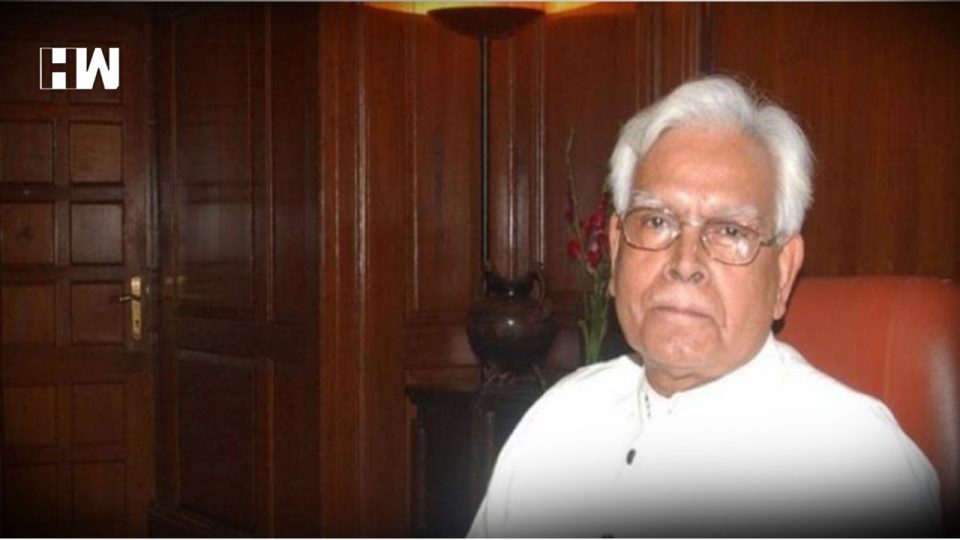The Muslim League, led by Muhammad Ali Jinnah, had called on Muslims to engage in direct action in support of the creating two nations
New Delhi: “I am happy that our country was partitioned” or else the Muslim League would have never allowed India to function and there would have been more “Direct Action Days”, Congress veteran leader K Natwar Singh said on Sunday.
Singh was speaking at the book launch of Rajya Sabha MP MJ Akbar’s “Gandhi’s Hinduism: The Struggle Against Jinnah’s Islam”. It was released by former president Pranab Mukherjee at his home.
“In my opinion, I am happy that India was partitioned. Because if India would have not partitioned we would have had Direct Action Days — the first we had during Jinnah’s lifetime was on August 16 (1946) when thousands of Hindus were killed in Kolkata, and then the repetition took place in Bihar where thousands of Muslims were killed.
“It could have been impossible for the reason that the Muslim League wouldn’t have allowed India to function,” he said.
The Muslim League, led by Muhammad Ali Jinnah, had called on Muslims to engage in direct action in support of creating two nations
On August 16, 1946, also known as the 1946 Calcutta Killings or Direct Action Day, communal riots erupted between Muslims and Hindus in Calcutta in Bengal province.
Stressing his point on Muslim League, Singh gave the example of the Interim Government of India, formed on September 2, 1946, and how the Muslim League first declined to join the cabinet of the council’s vice-president Jawaharlal Nehru, and later became part of it only to “turn down” all its proposals.
“Therefore anyone can imagine, if India was not partitioned, the Muslim League would have made things very very difficult for us to function. Also, the government’s situation would have worsened by the week,” he said.
Natwar Singh described Gandhi and Jinnah as two very “great” and “difficult” persons. “It would have been impossible to live with them. Because Gandhiji’s standards were very high and Jinnah’s temperament was so abrasive that I certainly wouldn’t have got on with him,” the 88-year-old said.
Singh added that he must be the only one in the audience who saw Gandhi in flesh and blood.
“In various ways, and according to my judgement, Gandhiji pampered Jinnah and in 1944, Gandhi visited Jinnah’s residence in Malabar Hill 17 times. But not once did Jinnah visited to meet Gandhi.
Singh questioned “Why Gandhiji visited? I know because Shri C Rajagopalachariji asked him to do so. Jinnah was a member of the Congress for several years, but when Gandhi came on the scene … Jinnah temperamentally didn’t fit in with his programme of non-cooperation and gradually parted ways. In 1928, the real parting took place when Jinnah went to London to become a lawyer because he thought of a political future for himself,”
As per Pranab Mukherjee, it was a “well-written” and “deeply researched” work that could become an important reference to analyse the history of partition.
“It is very clearly mentioned in the book the essential spiritual secularism that Gandhiji stood for and the divisive and the utilitarian colour that Jinnah gave to religion only to secure political ends.
“Also, it records how Gandhi and the Indian National Congress stood as a firm rock against the partition of the country till the very end,” he said.
Appreciating the book, National Security Advisor Ajit Doval, who was also present at the event, said Gandhi’s statement that he would like to go to Pakistan on August 15 “was symbolic of the great pain that he had carried”.
“In history, 70 years probably is not a very long time. This time will pass and we will learn by our own experiences. Probably we will do the right things after we have experimented with everything else.
“We will realise that our co-existence is a possibility and a reality and is the only thing that is beneficial at the end of it,” Ajit Doval said.
The book claims to analyse both the ideology and the personality of those who shaped the fate of the country and spells out the blunders, lapses and conscious chicanery that permeated the politics of seven violent years between 1940 and 1947.
As an independent media platform, we do not take advertisements from governments and corporate houses. It is you, our readers, who have supported us on our journey to do honest and unbiased journalism. Please contribute, so that we can continue to do the same in future.

